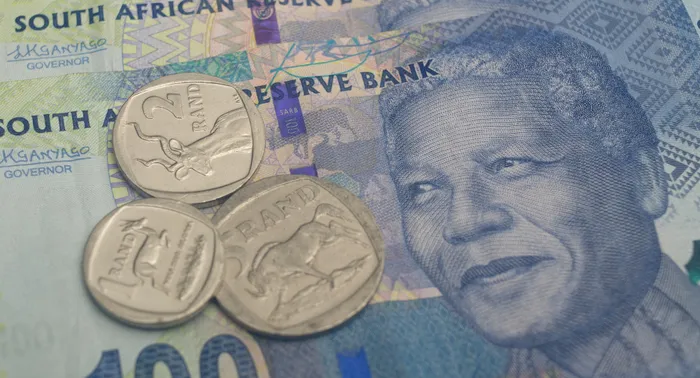
Investec chief economist, Annabel Bishop, said the rand has weakened on the difficulty of various political parties to find each other over approving South Africa’s budget, although the US dollar index has seen some recent stability ahead of the expected US tariff announcements.
Image: Picture: Henk Kruger/Independent Newspapers
The rand depreciated further by more than 1.6% to R18.78 to the US dollar by 7pm on Wednesday night, a fresh low since February 28, as investors reacted to rising political uncertainty amid budget turmoil.
Members of Parliament (MPs) voted in favour of passing the National Budget with a slight margin in a protracted vote as 194 supported the fiscal framework with the proposed 0.5% increase in the value-added tax (VAT) while 182 opposed it.
However, the process is not complete by any stretch as MPs have now given a 30-day period in which they will thrash out outstanding issues about the VAT increase, with a big push for its total scrapping.
The two largest parties in the ruling coalition have been negotiating for weeks to reach an agreement on the contested budget, marking the biggest test yet for the government of national unity formed after the ANC lost its parliamentary majority last year.
The Democratic Alliance (DA) announced that it would file papers in the Western Cape High Court to challenge Parliament’s passing of the 2025/26 National Budget, saying it was both unlawful and unconstitutional how Parliament processed the Budget.
DA leader John Steenhuisen said the party had vehemently opposed the Finance Minister Enoch Godongwana’s Budget proposal, saying it had negotiated for amendments that would have ensured economic growth and job-creation.
“Instead of the budget being amended to address the needs of struggling South Africans, the budget has been passed by the National Assembly with VAT hikes to make life more expensive for South Africans,” Steenhuisen said.
“Yesterday’s sitting of Parliament’s Finance Committee was not compliant with the standing rules of Parliament, in that the Fiscal Framework was not put to the Committee to approve or reject, and one proposal during the meeting of one political party was taken as adopted without the other tabled amendments being considered.”
Meanwhile, ongoing tensions with the US and uncertainty over upcoming global import tariffs were also adding pressure to the currency.
Trump was on Wednesday expected to make announcements under the America first trade policy, with increased protectionism against countries, which persistently run trade deficits with the US but with a high degree of uncertainty around their extent.
Investec chief economist, Annabel Bishop, said the rand has weakened on the difficulty of various political parties to find each other over approving South Africa’s budget, although the US dollar index has seen some recent stability ahead of the expected US tariff announcements.
“Already the US has announced a 25% tariff with respect to goods entered for consumption or withdrawn from warehouses for consumption, for automobiles, and automobile parts last week,” Bishop said.
“Global financial markets are consequently looking out for the additional tariff announcements today but are bearing in mind they can be paused or halted for individual countries, or goods as the US administration chooses to do so.
“The rand has reacted however to the increased political noise in SA around the budget, at R18.63/$1, weakening from R18.09/$1 in the second half of March, as some fears have arisen around the stability of the Government of National Unity.”
BUSINESS REPORT